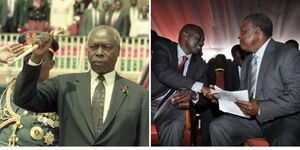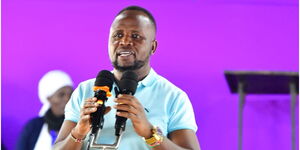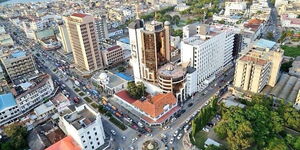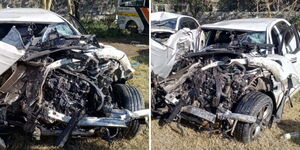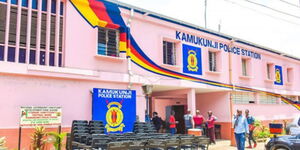Lawmakers allied to Kenya Kwanza on Tuesday, March 21, called on the Inspector General of Police, Japhet Koome, to go after Azimio Leader Raila Odinga and former President Uhuru Kenyatta for the damages incurred during the March 20, protests.
Questions surfaced about whether the former President and Prime Minister could be arrested and held responsible for allegedly financing the protests and what the repercussions thereafter would be.
Speaking to Kenyans.co.ke on Tuesday, March 21, Governance Expert Ben Mulwa and constitutional lawyer Duncan Okatch stated that the constitution allows the police to arrest former President Uhuru Kenyatta and Azimio leader Raila Odinga if found to have broken the law.
The analysts explained that Uhuru had immunity over such arrests while still in power and that it did not extend to retired presidents.
However, they detailed that Ruto had no authority whatsoever to arrest or sanction such arrests.
“Ruto has no power to arrest anybody. However, the National Police Service(NPS) and other mandated agencies can make the arrest because the former president is no longer protected by the immunity,” Mulwa stated.
He warned that the consequences of such actions would lead to calamity in the country noting that Uhuru was still a respected member of the society.
Mulwa argued that Kenya Kwanza politicians calling for the arrests were misguided because it would only cause more chaos.
“It would be ridiculous to try and prosecute the former president on such grounds. That is to divert Kenyans from addressing the important issues in the country like the cost of living which is a genuine issue. If they genuinely want this country burnt to the ground, they should attempt to arrest Raila,” stated Mulwa.
Okatch explained that despite the notion that president Ruto could influence the arrest of leaders, it was unconstitutional and there was a process for making such arrests.
“The NPS should make their own independent decision. They should not be given instructions to arrest anyone. The Director of Public Prosecutions (DPP) can then further look into the matter.
“Ruto’s influence over the Inspector General to a point of mandating any arrest is not constitutional, however, it is a very Kenyan way of doing things,” Okatch added.
At the same time, the constitutional lawyer elucidated that Odinga would be acting within the constitution and within his rights to report the president to the International criminal court.
“Even the ICC can itself look into the matter if they note that there is a breach of human rights. Raila and anyone else has a right to report such to the ICC.
“Ruto must look into the aftermath of this reality because things will only get worse. When arrested, where will they be taken in terms of a police station,” Okatch explained.
Article 143 of the constitution states that “criminal proceedings shall not be instituted or continued in any court against the President or a person performing the functions of that office, during their tenure of office.
“The immunity of the President under this Article shall not extend to a crime for which the President may be prosecuted under any treaty to which Kenya is party and which prohibits such immunity.”




